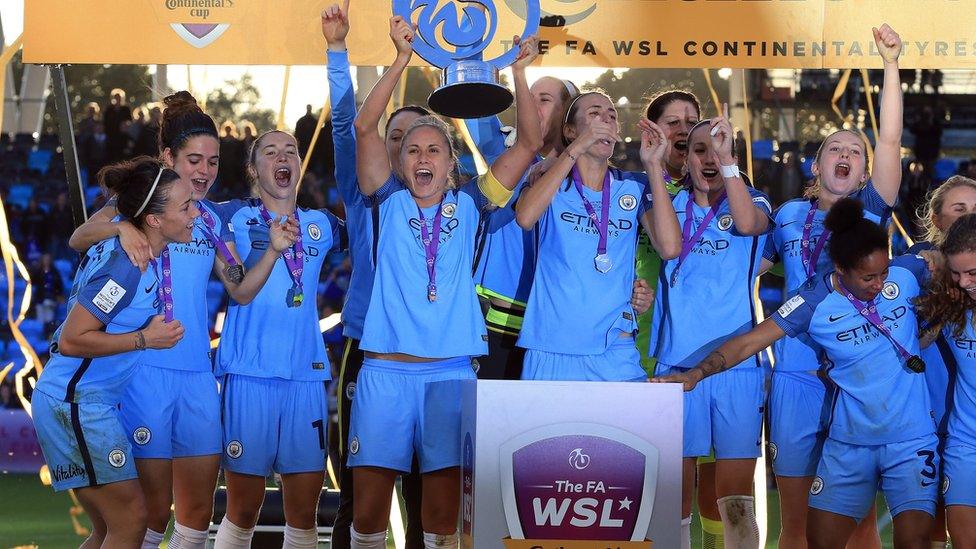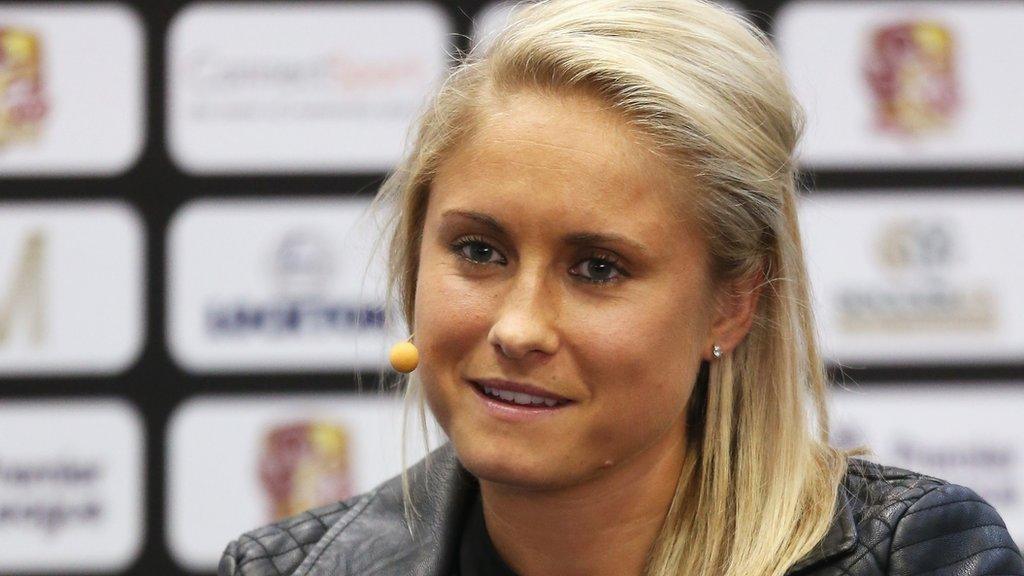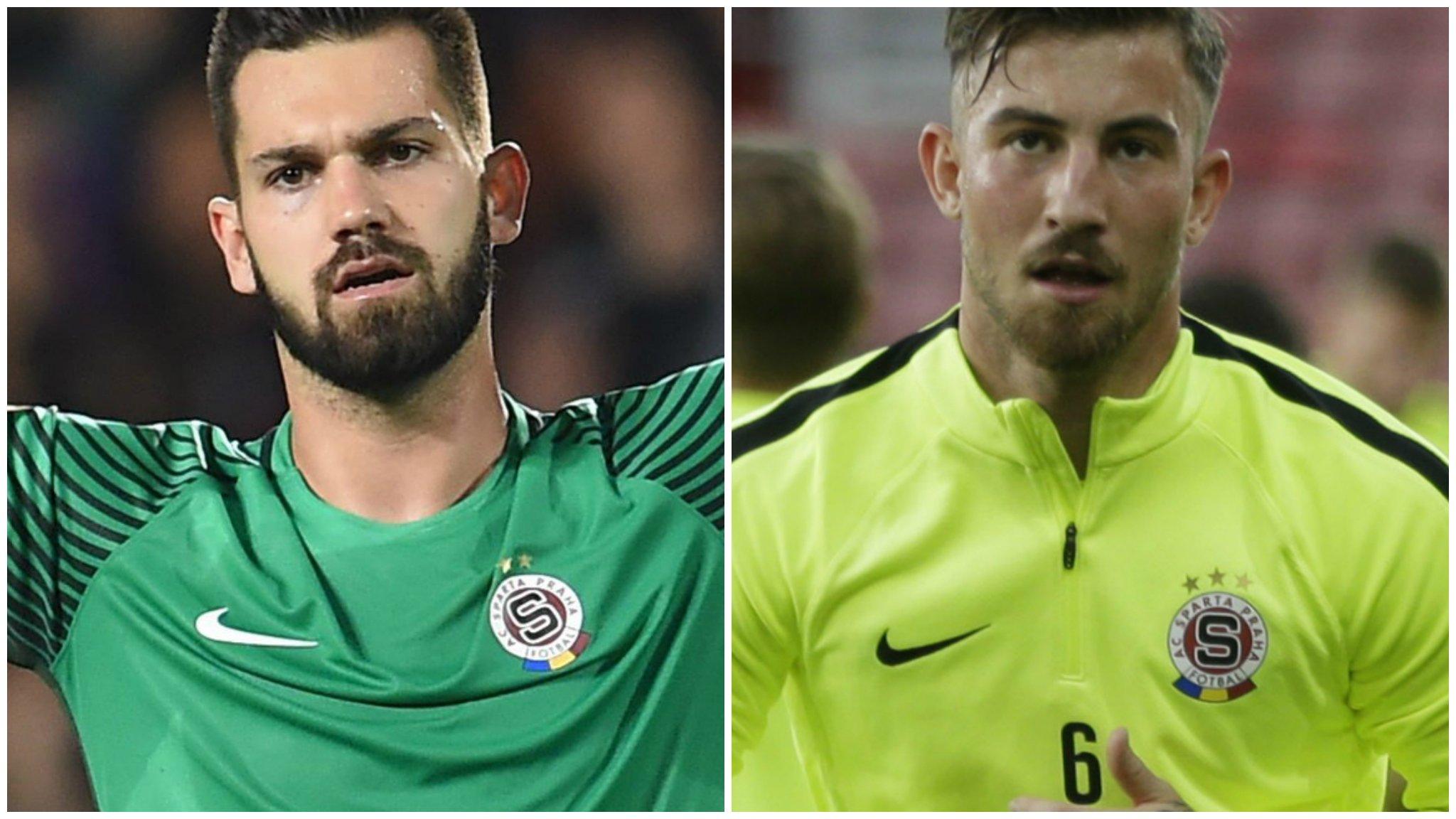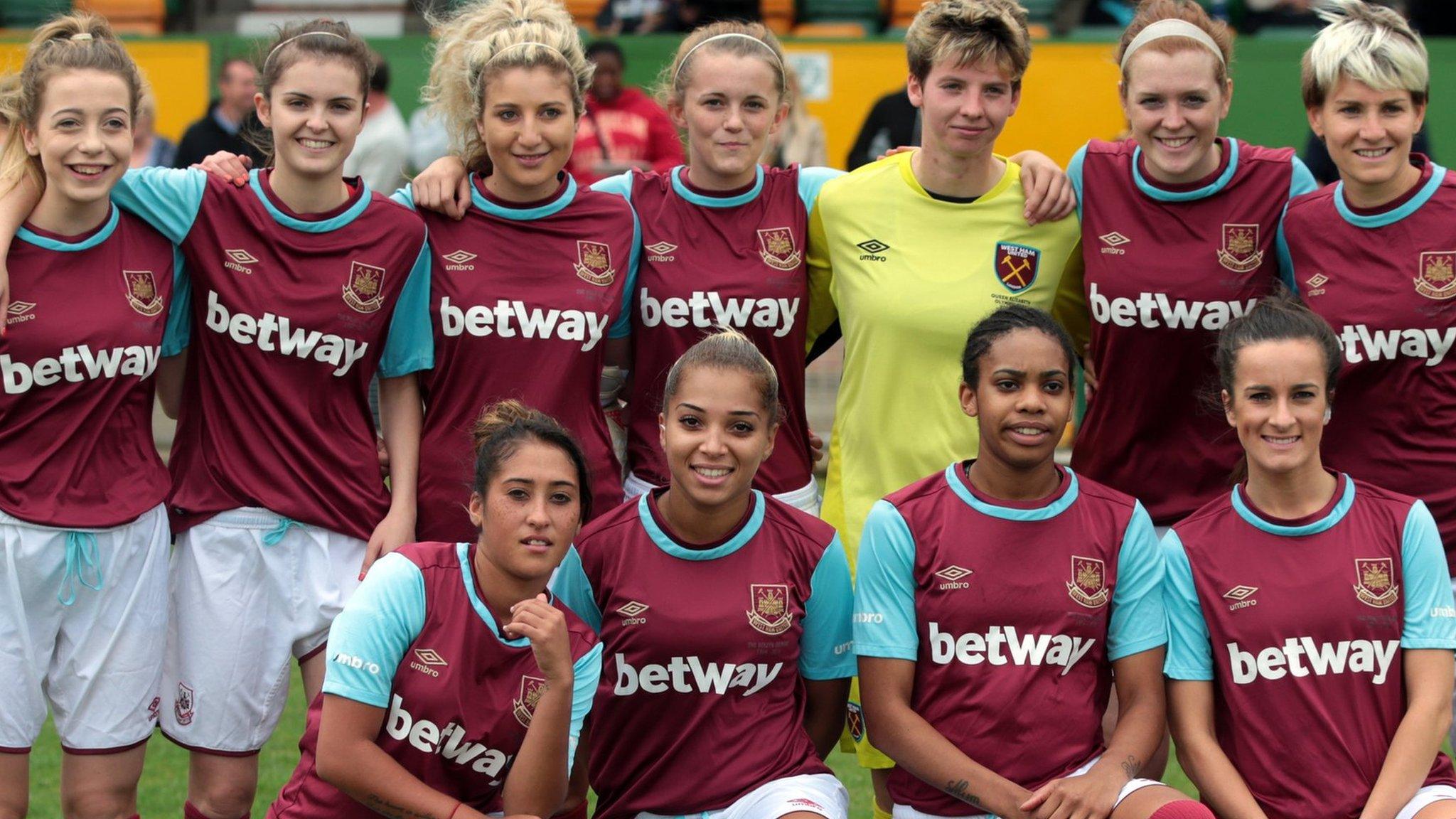Women versus ladies football: Does the name matter?
- Published

Football matches are sometimes described as "men against boys". On Sunday it was women against ladies.
The match was Manchester City versus Birmingham City in the final of the Women's Super League Cup.
Birmingham City call their side ladies, external. Manchester City - who won the match 1-0 - are called women, external. Does it matter either way?
"I hate that so many teams are called ladies," says Carrie Dunn, a writer, academic and football fan.
"It's old-fashioned. Other than tennis at Wimbledon, when do we refer to 'gentleman's sport'?"
Until 2014, Manchester City were known as ladies, but became "women" in an attempt to modernise.
The re-naming coincided with the club joining the Women's Super League. At the time, the team captain Steph Houghton - who also captains England - called it a "very positive name change".
The FA has always used "women" for its teams and leagues. But, it says, clubs are free to choose their own name.

The England captain, Steph Houghton
Of the 19 teams in the Women's Super League, 11 are known as ladies, five are women, and three - Doncaster Rovers Belles, London Bees, and Millwall Lionesses - are neither.
In Scotland, five Premier League teams are known as ladies, one as women, while two - Glasgow City and Forfar Farmington - do not refer to gender.
Sunday's beaten finalists Birmingham City say there's "no specific reason" why they chose ladies over women.
When the team formed in 1968, the club points out, they were called the Beau Belles.
So what's in a name? Plenty, says Professor Kath Woodward from the Open University, an expert on sociology and sport.
"The use of ladies suggests a physical frailty and need for protection," she says. "So yes - I think it does matter."
Deborah Cameron - a professor of language at the University of Oxford - agrees.
"Manchester City's name is less encumbered by a long history of squeamish euphemisms," she says.
"The plain term 'women' used to be thought vulgar."
At Millwall Lionessess' training ground in south-east London, the debate seems academic.
"It wouldn't bother me being called women or ladies," says Jordan Butler, a 24-year-old defender.
"I prefer women - it's less dated," says Ashlee Hincks, Millwall's joint-top scorer. "But it's not massively important."

Lionesses have their say

• "I wouldn't feel discriminated against by being in a 'ladies' team. Even if I was starting a team from scratch I'd want our gender in the name. If you're doing well you want that recognition of being a women's team." Jordan Butler, 24
• "It's not massively important. You have to separate the teams somehow. In theory, I guess you have like for like - Manchester City men and Manchester City women." Ashlee Hincks, 27
• "I like Lionesses, because it's personal to us. If each team had something more personal - something that suited them - that might be better." Ella Rutherford, 16

That message is echoed by Neville Dalton, who runs a women's football blog called Sent Her Forward, external.
"I've never come across a player or manager who was offended by the use of the word ladies - even if the club styled itself 'women'."
Despite that, he uses the term women.
"I feel it's more appropriate and neutral," he says. "Yet when I speak to managers and officials of both sexes, they invariably refer to their players as 'the ladies'."
But for Carrie Dunn, any gender label is "depressing".
"It's a particularly English thing," she says. "In the United States, the clubs have their own distinctive names."
None of the teams in the US top division - from the Boston Breakers to the Portland Thorns - refer to gender. The only cue is the name of the competition: the National Women's Soccer League.
That, though, may reflect the youth of the American clubs. All 10 were formed in the past decade, while many English clubs are far older.
Arsenal Ladies, for example, chose their name in 1987. And - as Carrie Dunn points out - although language is important, "it's very important to acknowledge the work that men's clubs are doing to support their women's teams".
According to the FA, external, 147,000 female players took part in affiliated league and cup competitions last year. That's up from just 10,400 in 1993, when records started.
But, the FA accepts, there are "barriers to overcome" if participation is to keep increasing.
And that applies whether teams are called women, ladies, bees, belles - or lionesses.
- Attribution
- Published4 October 2016

- Attribution
- Published3 October 2016

- Attribution
- Published3 October 2016
